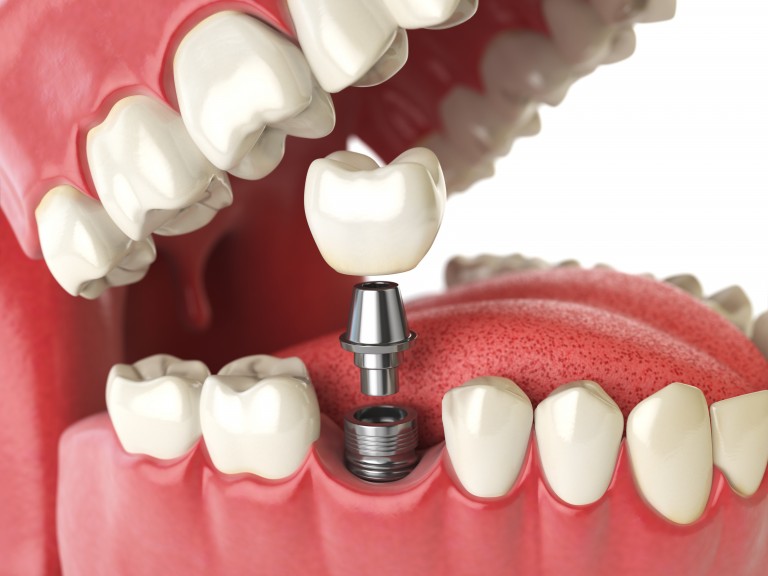 If you lose one of your permanent teeth, especially in the back of your mouth where it isn’t immediately obvious, you may be tempted to live with the gap rather than replace the tooth.
If you lose one of your permanent teeth, especially in the back of your mouth where it isn’t immediately obvious, you may be tempted to live with the gap rather than replace the tooth.
However, that choice will be detrimental to your overall well-being and quality of life. Consider some of the effects of missing teeth:
Difficulty speaking and eating. Lost teeth can make it difficult or impossible to properly chew certain foods, limiting your choices. Your teeth are also important to speaking clearly, and losing one or more can change your speech patterns or make it difficult to talk.
Infection. A gap where a tooth is missing is the ideal place for bacteria to build up, which can eventually cause an infection that can damage gum tissue and adjacent teeth.
Damage to other teeth. When you lose a tooth, your other teeth may wear down more quickly because they have to do more to make up for the missing tooth. This is especially problematic when you lose back teeth, which requires your front teeth to do more chewing. Because the front teeth aren’t designed for that level of stress, they experience more wear and tear, putting them at risk of damage — or even falling out.
Misalignment. When a lost tooth isn’t replaced, the remaining teeth may shift into the gap. Eventually, this can cause misalignment. This in turn can lead to pain, bite problems, and further tooth damage.
Bone loss. Losing a tooth and not replacing it can actually change the bone structure in your face. Over time, the bone that surrounds the empty tooth socket can start to deteriorate, causing changes to the shape of your mouth. Without the support of the bone, the muscles in your face can droop as well. This creates the “sunken” appearance associated with tooth loss.

 If you lose one of your permanent teeth, especially in the back of your mouth where it isn’t immediately obvious, you may be tempted to live with the gap rather than replace the tooth.
If you lose one of your permanent teeth, especially in the back of your mouth where it isn’t immediately obvious, you may be tempted to live with the gap rather than replace the tooth. Because missing one or more teeth isn’t only a cosmetic issue, having it replaced should be a priority. Penn Dental Medicine prosthodontists will work with you to determine the best tooth replacement option that fits your budget, and helps you maintain a healthy smile.
Because missing one or more teeth isn’t only a cosmetic issue, having it replaced should be a priority. Penn Dental Medicine prosthodontists will work with you to determine the best tooth replacement option that fits your budget, and helps you maintain a healthy smile.